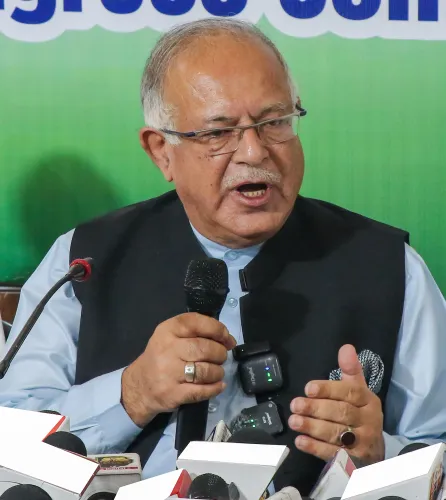What led to the life sentence for Cadell J. Raja in the Nathancode murder case?

Synopsis
Key Takeaways
- Cadell J. Raja received a life sentence for the murder of four family members.
- The court imposed a fine of Rs 15 lakh.
- The murders were premeditated and involved extensive planning.
- Raja attempted to use mental health as a defense in court.
- Evidence included CCTV manipulation and online purchases of murder weapons.
Thiruvananthapuram, May 13 (NationPress) The Additional District and Sessions Court VI in Thiruvananthapuram has sentenced a man to life imprisonment and imposed a fine of Rs 15 lakh for the heinous act of murdering four family members—his parents, sister, and aunt—in Nathancode.
On Monday, the court declared Cadell J. Raja guilty.
Raja has been ordered to remit the fine to his uncle, Jose, a piano teacher.
Living with his 60-year-old father, mother, sister, and blind aunt, Raja committed these murders over a span of two days in April 2017.
After the killings, three of the bodies were discovered burned, while one was found in a mutilated and decomposed condition when police forced entry into the house days later.
Raja had ongoing conflicts with his father due to being sent to study medicine in Ukraine and later for a computer course in Australia, both against his wishes.
His decision to abandon both courses led to escalating disputes with his father.
After the murders, Raja fled to Chennai, but was arrested upon his return days later.
Despite his claims of being away during the incident, police disproved his alibi through scientific evidence indicating his presence at the scene.
Investigations suggested that Raja meticulously planned the murders; he disabled the CCTV cameras and isolated each victim prior to the attacks.
Forensic findings indicated that he utilized dummy figures to strategize the murders and purchased weapons, including knives and axes, online.
He procured chemicals to cleanse the blood traces following each killing.
Moreover, it was revealed that Raja had been engaged in watching violent video games.
The police rejected his assertion that the act was part of an 'astral projection' experiment, a concept associated with out-of-body experiences.
The trial faced delays due to his mental health treatment and the COVID pandemic. However, the prosecution maintained that the murders were premeditated, highlighting the extensive planning involved, while Raja’s defense argued for his mental instability.
While incarcerated, he astonished fellow inmates by claiming to converse with his deceased parents, asserting expertise in astral projection.









